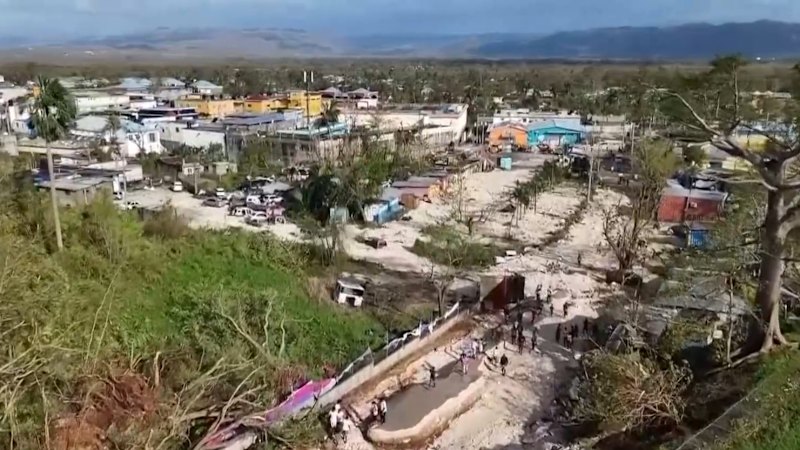
The Caribbean has been severely impacted by the devastation caused by **Hurricane Melissa**, a rare and deadly Category 5 storm that has resulted in over **30 fatalities**. The hurricane made landfall on **August 15, 2023**, and has left a trail of destruction across multiple islands, prompting urgent calls for humanitarian aid.
As communities begin to assess the damage, reports indicate that several regions have experienced catastrophic flooding, widespread power outages, and significant infrastructure damage. The **National Hurricane Center** has confirmed that Melissa generated winds exceeding **160 miles per hour**, categorizing it among the most powerful storms to strike the area in recent history.
Emergency response teams have mobilized to assist affected populations. Efforts are focused on providing shelter, food, and medical care to those displaced by the hurricane. Local governments, supported by international organizations, are coordinating relief efforts to ensure that immediate needs are met.
Devastation and Response Efforts
The destruction caused by Hurricane Melissa has been particularly acute in low-lying coastal areas, where storm surges have inundated homes and businesses. Officials are urging residents to remain vigilant as recovery efforts continue and the potential for further severe weather looms.
In addition to the loss of life, the hurricane has left thousands without access to clean drinking water and electricity. The damage to infrastructure is extensive, with roads blocked by debris and many public facilities rendered inoperable. Restoration of services is expected to take several weeks, if not longer, in some areas.
Local governments are appealing for donations and assistance from the international community to support recovery efforts. Humanitarian organizations are on the ground, providing crucial services and supplies, including food, water, and medical assistance.
Long-term Implications
The impact of Hurricane Melissa extends beyond immediate relief efforts. Experts warn that climate change is contributing to the increasing frequency and intensity of hurricanes in the Caribbean. This trend poses long-term risks to island nations that rely heavily on tourism and agriculture.
As the region begins to recover from this latest disaster, officials are emphasizing the need for more robust infrastructure and disaster preparedness plans. The goal is not only to recover from Hurricane Melissa but to build resilience against future storms.
In the coming weeks, more detailed assessments of the economic impact and the long-term recovery plans will be necessary. The Caribbean has faced numerous challenges in the past, and this latest hurricane underscores the urgent need for coordinated action to mitigate the effects of climate change and protect vulnerable communities.
The full scope of Hurricane Melissa’s destruction is still unfolding, but the resilience of the Caribbean people remains strong as they come together to face the challenges ahead.






